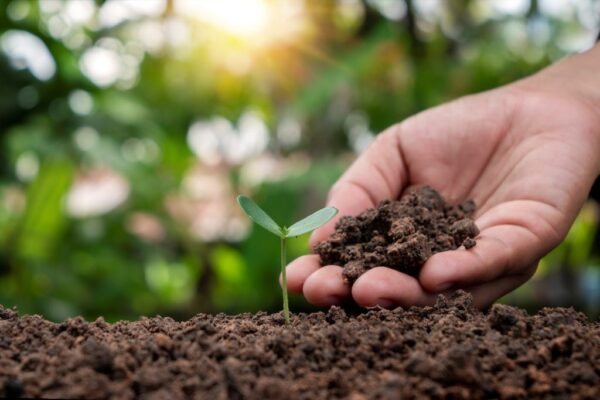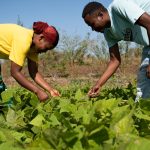The Africa Fertilizer and Soil Health Summit (AFSH24), organized by the African Union and the Government of the Republic of Kenya, has commenced in Nairobi, Kenya, bringing together more than 4,000 participants, including 8 heads of state and government, 25 agriculture ministers, 32 foreign affairs ministers, government officials, scientists, civil society representatives, and partners.
The summit aims to facilitate crucial discussions on enhancing the value of land as a vital asset for farmers. Over the next three days, participants will engage in dialogue to drive Africa’s agricultural transformation and set the agenda for future food systems, aligning with the 50-year development plan, Agenda 2063.
AFSH24 will also assess progress since the 2006 Abuja Declaration, which aimed to increase fertilizer use for agricultural growth to a minimum of 50 tons per hectare, a target that remains largely unmet. This underscores the urgent need for innovative approaches to address the continent’s declining soil health and the unsustainable expansion of croplands.
The summit will culminate in the Nairobi Declaration, defining the African Fertilizer Financing Mechanism (AFFM) and a 10-year Soil Health Action Plan. Africa loses over US$4 billion worth of soil nutrients annually, posing a significant risk to its food security.
Additionally, nearly 282 million people in Africa, approximately 20 percent of the population, are undernourished, marking an increase of 57 million people since the onset of the COVID-19 pandemic.
Fertilizer consumption per hectare of arable land varies widely across Africa, ranging from 0.03 kilograms in Sudan and 1.04 kilograms in Somalia to 542.47 kilograms in Seychelles and 542.57 kilograms in the Arab Republic of Egypt, which represents the highest figure recorded by an African country.
Approximately 10 countries have met or exceeded the targets set in the 2006 Abuja declaration. These countries include Morocco (55.29 kg), Eswatini (57.77 kg), Botswana (59.27 kg), Kenya (60.66 kg), Zambia (63.90 kg), Malawi (96.74 kg), South Africa (104.64 kg), Mauritius (186.50 kg), Seychelles (542.47 kg), and the Arab Republic of Egypt (542.57 kg).
Hon. Frank Tumwebaze, Minister of Agriculture, Animal Industry and Fisheries of the Republic of Uganda and Chair of the AU Specialized Technical Committee on Agriculture, Rural Development, Water, and Environment, emphasized that while fertilizer usage has increased in some areas, the resulting yield gains remain unpredictable, particularly in rainfed agriculture. Uganda’s current fertilizer use stands at 2 kilograms per hectare.
AFSH24 aims to address agricultural sustainability comprehensively, prioritizing climate change mitigation, land restoration, and biodiversity conservation in agricultural practices.
During the opening ceremony, Ambassador Josefa Leonel Correia Sacko, the Commissioner for Agriculture, Rural Development, Blue Economy, and Sustainable Environment at the African Union Commission (AUC), stressed the importance of collaborative action and innovative solutions. She noted that despite Africa’s soils being among the oldest globally, they have become the poorest, losing over US$4 billion worth of soil nutrients annually and posing a severe risk to the continent’s food security.
Kenya’s Cabinet Secretary for Agriculture and Livestock Development (MoALD), Mithika Linturi, expressed confidence that critical decisions would be made during the summit to immediately transform Africa’s soil health for the attainment of food security and economic growth. He highlighted the need for AU member states to accelerate progress towards the Abuja Declaration’s target of 50 kilograms per hectare.
This year’s Summit, themed “Listen to the Land,” aims to assess Africa’s soil health status and review progress made since previous commitments by African leaders to enhance fertilizer use for agricultural growth. The theme serves as a Call to Action for stakeholders to prioritize soil health and consider adopting regenerative practices, policies, and approaches to improve the long-term value of land as a critical asset for farmers.
Expected outcomes from the event include the drafting and endorsement of the Nairobi Declaration on Fertilizer and Soil Health, as well as a 10-year Action Plan and financing mechanisms to drive soil health transformation across Africa. It is anticipated that $15 billion of private sector investment will be required to increase local manufacturing of mineral fertilizers, with the goal of tripling local production of organic and inorganic fertilizers by 2033 for accelerated impact.





